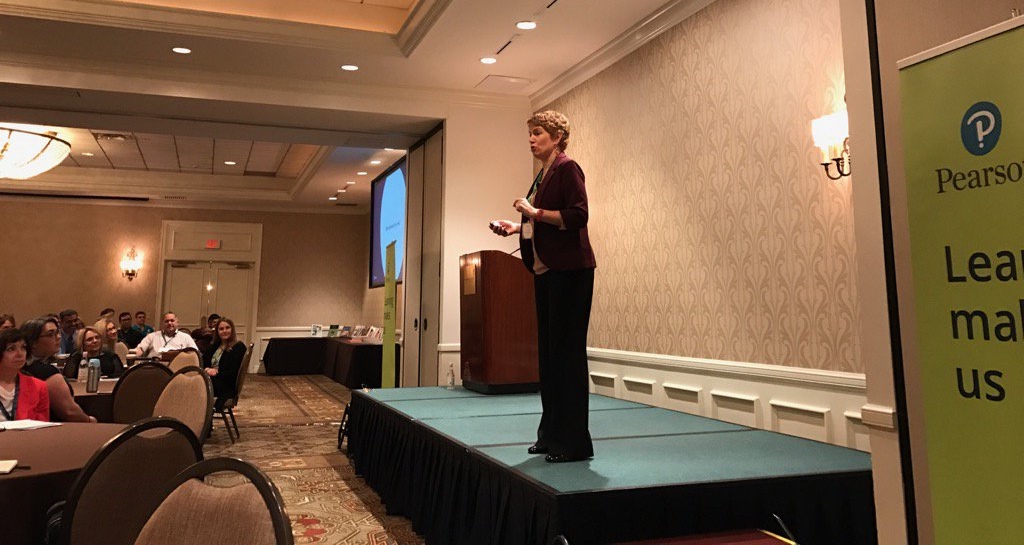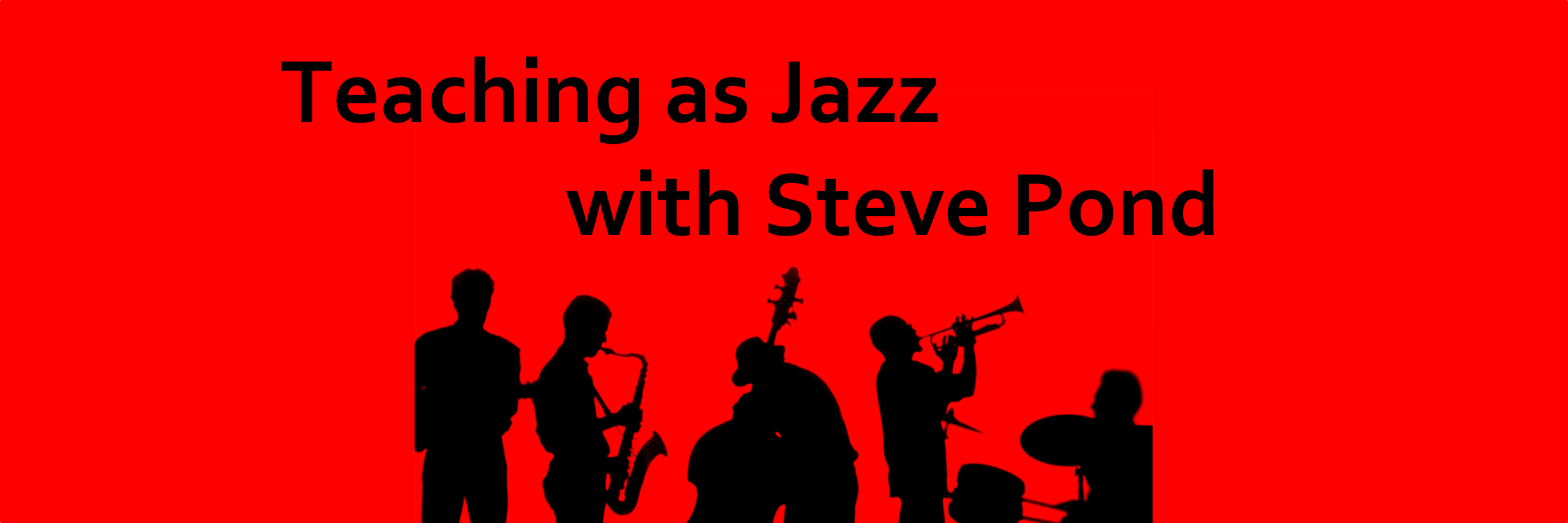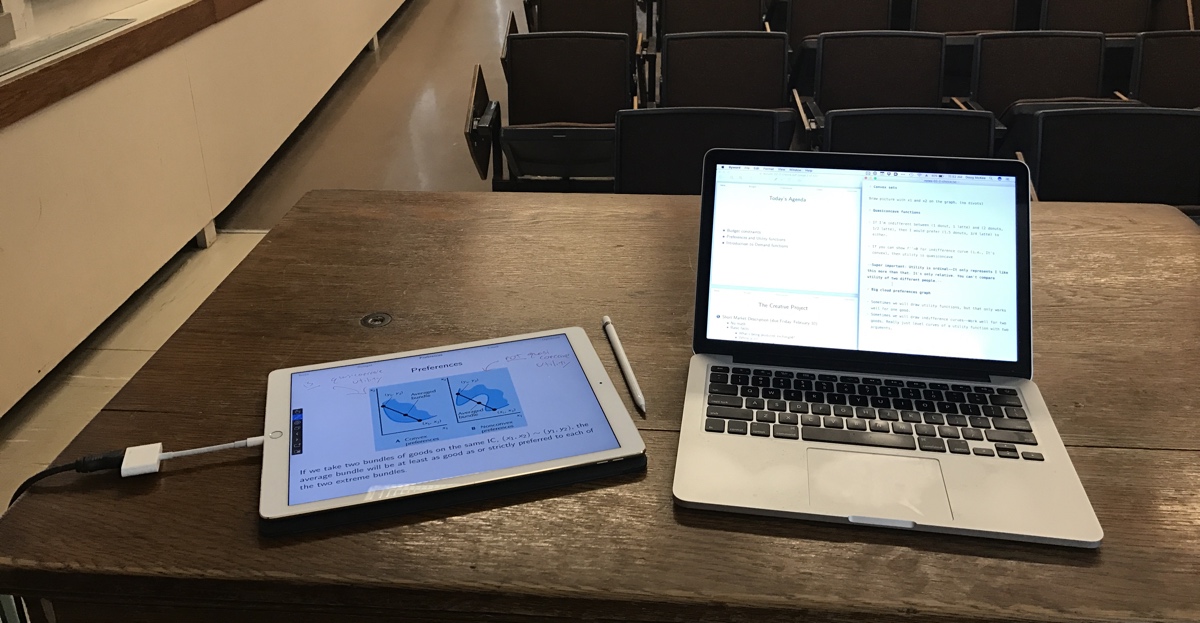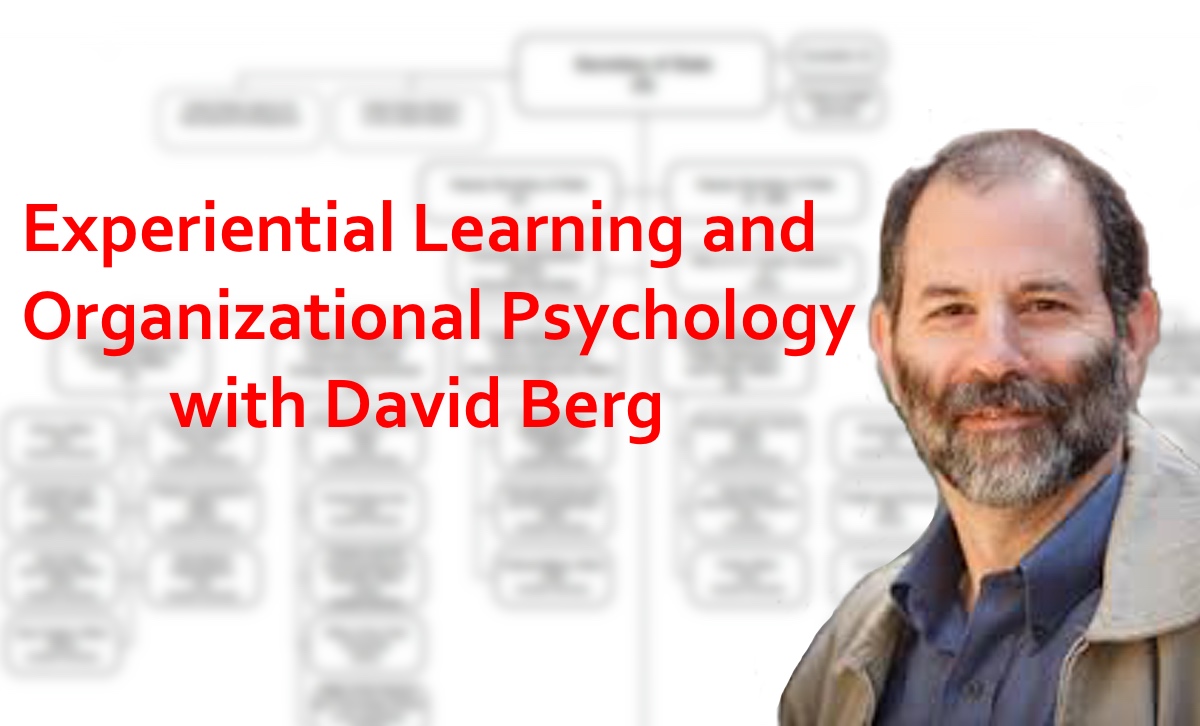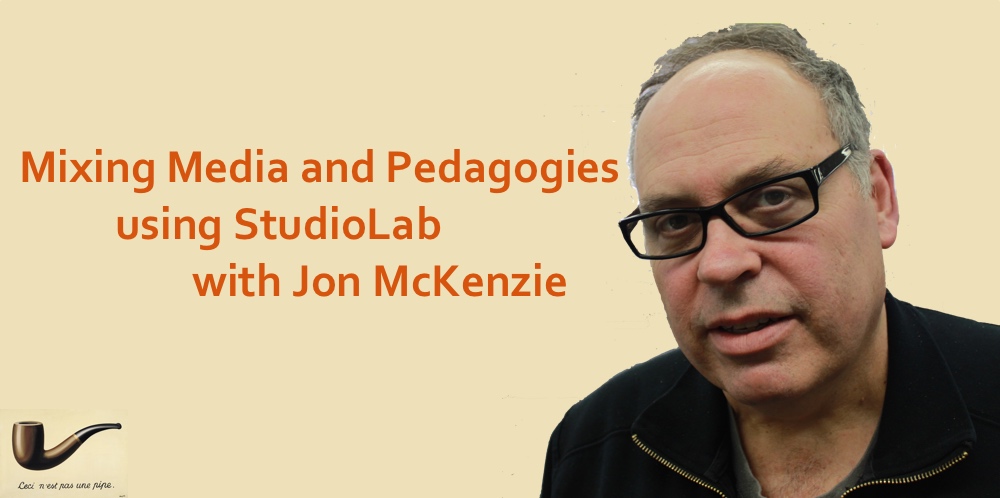Jon McKenzie is a visiting professor in Cornell University’s English Department and a Dean’s Fellow for Media and Design. He is a teacher, an artist, and a teacher of artists. Jon and his students refuse to be constrained by the traditional academic media of articles and books, and instead work together to communicate ideas using alternative media such as audio, video, zines, and virtual reality environments. Jon has also developed his own pedagogical method which he calls StudioLab. During our conversation, we talk about how he combines elements of seminar classes, lecture classes, studio classes, and computer labs into single action-packed three hour class periods.
Read on →
